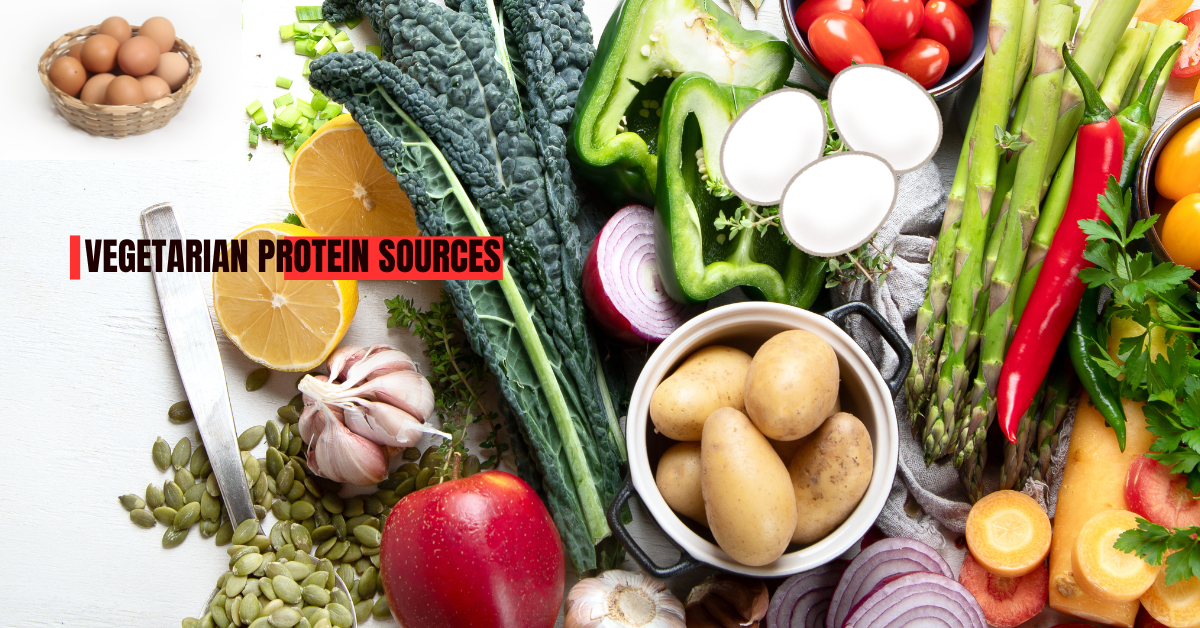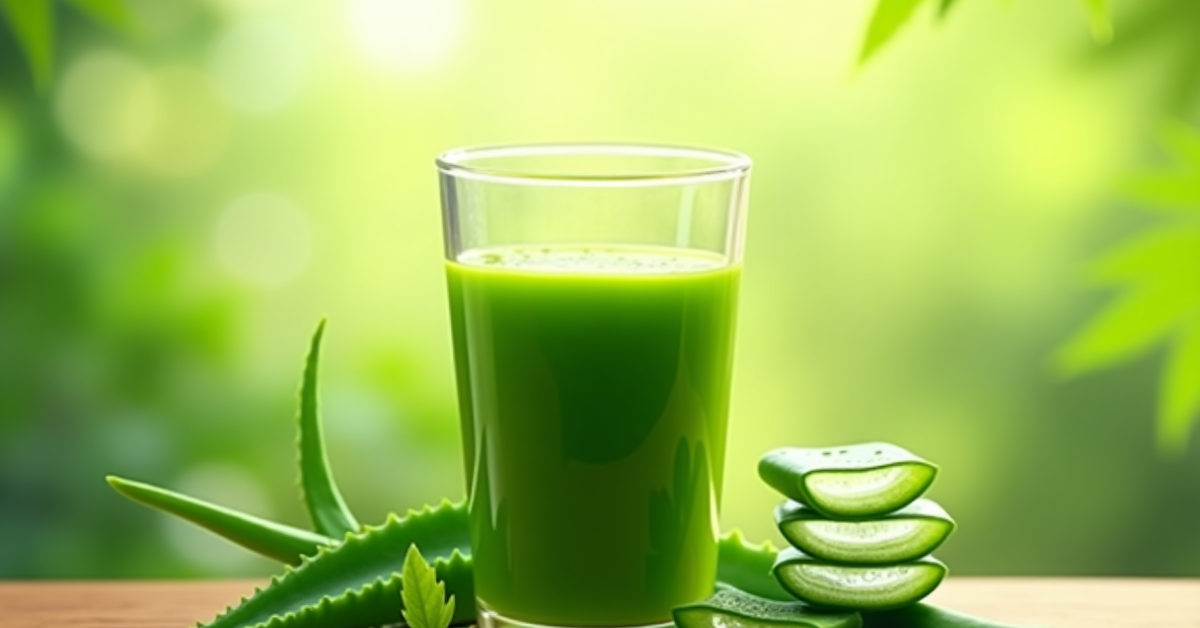Health&Beauty
Wellhealthorganic.com: Vegetarian Protein Sources for a Healthy Lifestyle

Introduction
Protein is an essential macronutrient that supports muscle repair, enzyme production, and overall health. As more people adopt vegetarian diets for health, ethical, and environmental reasons, the need to find reliable vegetarian protein sources has grown significantly. At wellhealthorganic.com, we provide a comprehensive guide to help vegetarians meet their protein needs effectively and sustainably.
You may also read this content: How to Easily Remove Dark Spots with Lemon Juice: A Natural Remedy
Understanding Protein and Its Importance
Protein serves as the building block of the body, contributing to muscle development, hormone synthesis, and immune system support. For vegetarians, understanding the difference between complete and incomplete proteins is crucial. Complete proteins contain all nine essential amino acids, while incomplete proteins require strategic combinations to meet dietary needs.
Benefits of Vegetarian Protein Sources
- Health Benefits: Vegetarian protein sources are often low in saturated fats and cholesterol, reducing the risk of heart disease and promoting digestive health.
- Environmental Impact: Plant-based proteins have a smaller carbon footprint compared to animal-based proteins, contributing to environmental sustainability.
- Ethical Considerations: Choosing plant-based proteins helps avoid animal cruelty, aligning with ethical living principles.
Top Vegetarian Protein Sources
- Legumes and Lentils
- Chickpeas, black beans, and lentils are protein-rich and versatile.
- Lentils provide approximately 18 grams of protein per cup, along with fiber and iron.
- Nuts and Seeds
- Almonds, walnuts, chia seeds, and flaxseeds are excellent protein sources.
- Chia seeds offer 4 grams of protein per 2 tablespoons and are rich in omega-3 fatty acids.
- Whole Grains
- Quinoa, oats, and farro are nutritious grains with high protein content.
- Quinoa is a complete protein, providing 8 grams per cup.
- Soy Products
- Tofu, tempeh, edamame, and soy milk are versatile and protein-packed options.
- Tempeh provides 19 grams of protein per 100 grams and is rich in probiotics.
- Dairy and Eggs
- For lacto-ovo vegetarians, Greek yogurt, cottage cheese, and eggs are excellent protein choices.
- One large egg contains 6 grams of high-quality protein.
- Vegetables with High Protein Content
- Spinach, broccoli, and peas are great plant-based options.
- A cup of cooked spinach provides 5 grams of protein along with essential vitamins.
You may like this content: Wheon Web what you need to know?
Combining Foods for Complete Proteins
For vegetarians, combining certain foods ensures complete protein intake. Examples include:
- Rice and beans.
- Peanut butter on whole-grain bread.
- Hummus with whole-grain pita.
Tips for Incorporating Vegetarian Proteins into Your Diet
- Start your day with a protein-packed smoothie using Greek yogurt or soy milk.
- Add legumes to soups, stews, and salads for a nutrient boost.
- Snack on nuts, seeds, or roasted chickpeas for healthy protein.
Common Myths About Vegetarian Proteins
- Myth: Vegetarians can’t get enough protein.
- Fact: With a varied diet, vegetarians can easily meet their protein needs.
- Myth: Plant-based proteins are inferior to animal proteins.
- Fact: Many plant-based proteins are complete or can be combined to achieve completeness.
Who Can Benefit from Vegetarian Proteins?
- Athletes: Build and repair muscles with high-protein legumes and soy products.
- Weight Watchers: Low-calorie, high-protein foods like lentils and spinach aid weight management.
- Vegans and Vegetarians: Meet daily protein needs without animal products.
Resources from Wellhealthorganic.com
Visit wellhealthorganic.com for in-depth guides, recipes, and expert advice on incorporating vegetarian proteins into your daily routine. Discover innovative meal ideas and trusted tips for a balanced diet.
Conclusion
Vegetarian protein sources offer numerous health, environmental, and ethical benefits. From legumes to soy products, there’s no shortage of options for meeting protein requirements. Explore wellhealthorganic.com to find reliable, expert-backed information for your journey toward a healthier lifestyle.
FAQs
- What are the best vegetarian protein sources?
Lentils, quinoa, tofu, and nuts are excellent choices. - Can vegetarians get enough protein?
Yes, with a diverse diet and strategic food combinations. - How much protein do I need daily?
It depends on factors like age, activity level, and health goals.
Health&Beauty
Neem and Aloe Vera Juice: Uses and Benefits

Introduction
Neem and aloe vera are two of nature’s most powerful healing plants, widely used in Ayurveda for their medicinal properties. Whether you want glowing skin, strong immunity, or better digestion, these natural remedies have got you covered. But what makes neem and aloe vera juice so special? Let’s dive into their benefits and best ways to use them.
Health Benefits of Neem and Aloe Vera Juice
Boosts Immunity Naturally
Both neem and aloe vera are rich in antioxidants and anti-inflammatory compounds that help strengthen the immune system. Regular consumption can protect the body from infections, flu, and seasonal illnesses.
Aids Digestion and Gut Health
Neem has antibacterial properties that help eliminate harmful gut bacteria, while aloe vera soothes the digestive tract, reducing acidity and bloating. Together, they support a healthy gut microbiome.
Supports Detoxification
Neem and aloe vera work as natural detoxifiers, cleansing the liver and blood by flushing out toxins. This helps in purifying the body from within, leading to healthier skin and overall wellness.
Promotes Healthy Skin and Hair
Both neem and aloe vera have antifungal and antibacterial properties, making them excellent for skin and hair health. They help combat dandruff, acne, and scalp infections, leaving your skin clear and your hair nourished.
Regulates Blood Sugar Levels
Studies suggest that neem and aloe vera juice may help manage blood sugar levels by improving insulin sensitivity, making them beneficial for people with diabetes.
Enhances Oral Health
Neem is well-known for its antibacterial properties, helping prevent gum infections, cavities, and bad breath. Aloe vera, on the other hand, soothes mouth ulcers and strengthens gums.
Benefits of Neem and Aloe Vera Juice for Skin
Fights Acne and Pimples
Neem’s antibacterial properties kill acne-causing bacteria, while aloe vera soothes redness and inflammation. Together, they create a powerful remedy for clear skin.
Reduces Skin Inflammation and Irritation
If you suffer from eczema, psoriasis, or skin allergies, neem and aloe vera juice can provide relief by reducing inflammation and irritation.
Delays Signs of Aging
Packed with antioxidants, neem and aloe vera slow down aging by reducing fine lines, wrinkles, and sagging skin.
Natural Skin Cleanser
Neem and aloe vera help detoxify the skin from within, preventing blemishes and keeping it naturally radiant.
Benefits of Neem and Aloe Vera Juice for Hair
Prevents Dandruff and Itchy Scalp
Neem’s antifungal properties keep dandruff at bay, while aloe vera hydrates and soothes the scalp, reducing itchiness.
Strengthens Hair and Reduces Hair Fall
The vitamins and minerals in aloe vera nourish hair follicles, strengthening roots and minimizing hair fall.
Promotes Hair Growth
Neem improves scalp circulation, while aloe vera deeply conditions hair, leading to faster and healthier growth.
Benefits of Neem and Aloe Vera Juice for Digestion
Improves Gut Health
Drinking neem and aloe vera juice regularly can balance the gut flora, improving digestion and preventing infections.
Helps with Constipation and Bloating
Aloe vera’s natural laxative properties help relieve constipation, while neem aids in reducing bloating and gas.
Balances Stomach Acidity
Aloe vera juice helps neutralize excess stomach acid, providing relief from heartburn and acid reflux.
How to Consume Neem and Aloe Vera Juice
Best Time to Drink
The best time to drink neem and aloe vera juice is on an empty stomach in the morning for maximum absorption.
Recommended Dosage
A small amount (10-20 ml) diluted with water is enough to reap the benefits without causing any side effects.
DIY Neem and Aloe Vera Juice Recipe
- Take a handful of fresh neem leaves and an aloe vera leaf.
- Blend them with a glass of water.
- Strain the juice and drink it fresh.
Side Effects and Precautions
Who Should Avoid Neem and Aloe Vera Juice?
Pregnant and breastfeeding women, as well as people with low blood sugar or kidney issues, should consult a doctor before consuming neem and aloe vera juice.
Potential Allergic Reactions
Some people may experience allergic reactions such as itching, stomach discomfort, or rashes. Always start with a small dose.
Recommended Dosage Limits
Excessive consumption can lead to digestive discomfort. Stick to the recommended dosage for safe use.
Conclusion
Neem and aloe vera juice offer a powerhouse of benefits for the body, skin, and hair. Whether you’re looking to detox, boost immunity, or improve digestion, incorporating this natural remedy into your routine can make a huge difference. However, moderation is key to avoiding potential side effects.
FAQs
1. Can I drink neem and aloe vera juice daily?
Yes, but in small amounts. Overconsumption may lead to digestive issues.
2. Is neem and aloe vera juice safe for pregnant women?
No, it is not recommended during pregnancy as it may cause complications.
3. How does neem and aloe vera juice help in detoxification?
Both ingredients cleanse the liver and blood, helping to remove toxins from the body naturally.
4. Can neem and aloe vera juice cure acne permanently?
While it helps in controlling acne, maintaining a healthy lifestyle and skincare routine is also necessary.
5. What is the best way to consume neem and aloe vera juice?
Drink it on an empty stomach in the morning, diluted with water for best results.
Health&Beauty
Know the Causes of White Hair and Easy Ways to Prevent It Naturally

Introduction
White hair is often considered a sign of aging, but for many, it can appear earlier than expected. While some people embrace their silver strands, others seek ways to prevent or reverse them. So, what causes hair to turn white, and can you stop it naturally? Let’s dive into the science behind white hair and explore natural ways to prevent it.
The Science Behind White Hair
How Hair Gets Its Color
Hair color is determined by melanin, a pigment produced by melanocyte cells in hair follicles. The more melanin your hair has, the darker it appears. Over time, melanin production slows down, leading to gray or white hair.
Role of Melanin in Hair Pigmentation
There are two types of melanin: eumelanin (responsible for black and brown shades) and pheomelanin (responsible for red and blonde hues). A decrease in melanin leads to the gradual loss of hair color.
Common Causes of White Hair
Aging Process
Aging is the most common reason for white hair. As you grow older, melanocyte cells become less active, reducing melanin production.
Genetics
Your genes play a crucial role in determining when your hair will turn white. If your parents experienced premature graying, chances are you might too.
Stress and Lifestyle Factors
Chronic stress may accelerate graying. High-stress levels can lead to oxidative stress, which damages melanocytes and affects hair pigmentation.
Nutritional Deficiencies
Lack of essential nutrients like vitamin B12, iron, copper, and folic acid can contribute to premature white hair. A balanced diet is key to maintaining healthy pigmentation.
Smoking and Pollution
Smoking is linked to early graying due to increased oxidative stress in the body. Similarly, pollution and exposure to harmful chemicals can damage hair follicles.
Medical Conditions Affecting Hair Pigmentation
Certain medical conditions, such as thyroid disorders, vitiligo, and autoimmune diseases, can impact melanin production and lead to premature white hair.
How to Prevent White Hair Naturally
Nutrient-Rich Diet for Healthy Hair
Eating a diet rich in antioxidants, proteins, and essential fatty acids can help maintain natural hair color.
Essential Vitamins and Minerals
- Vitamin B12 – Supports melanin production and prevents premature graying.
- Iron & Copper – Vital for hair pigmentation and overall hair health.
- Folic Acid & Biotin – Strengthens hair and promotes melanin production.
Herbal Remedies and Natural Oils
Using herbal treatments like amla (Indian gooseberry), curry leaves, and black sesame seeds can nourish hair and prevent graying.
Reducing Stress for Hair Health
Practicing meditation, yoga, and relaxation techniques can lower stress levels and slow down premature graying.
Scalp Care and Proper Hair Hygiene
Keeping your scalp clean and massaging it regularly can stimulate hair follicles and improve melanin production.
Avoiding Harmful Hair Products
Chemical-laden hair dyes, harsh shampoos, and excessive heat styling can weaken hair and speed up graying. Opt for natural and gentle hair care products.
Natural Home Remedies to Reverse White Hair
Coconut Oil and Lemon Juice Treatment
Massaging a mixture of coconut oil and lemon juice into the scalp nourishes hair and may slow down white hair progression.
Curry Leaves and Amla (Indian Gooseberry) Mask
Boiling curry leaves with amla and applying it as a hair mask provides essential nutrients that support melanin production.
Black Tea Rinse
Rinsing hair with black tea enhances natural pigmentation and adds a darker tone to graying hair.
Onion Juice for Hair Pigmentation
Applying onion juice to the scalp may boost catalase enzyme levels, which can help restore natural hair color.
Lifestyle Changes for Preventing White Hair
Balanced Diet and Hydration
Eating a well-balanced diet and drinking plenty of water keeps hair healthy from within.
Quality Sleep and Stress Management
Adequate sleep and relaxation techniques promote better hair health and reduce premature graying.
Regular Exercise and Scalp Massage
Exercise improves blood circulation, which nourishes hair follicles and supports melanin production.
Myths About White Hair
Does Plucking One White Hair Cause More to Grow?
No, this is a myth. Plucking a white hair does not cause more to grow, but it can damage hair follicles over time.
Can Hair Turn White Overnight?
Hair does not turn white overnight. Gradual pigment loss occurs due to aging, genetics, or other factors.
Conclusion
White hair is a natural part of aging, but premature graying can be managed with proper nutrition, stress reduction, and natural remedies. While there is no magic cure to reverse white hair permanently, adopting a healthy lifestyle can slow its progression and keep your hair looking vibrant.
FAQs
1. Can white hair turn black again naturally?
Once melanin production stops, hair cannot naturally regain its color. However, some natural remedies may help slow down the graying process.
2. Does stress really cause white hair?
Yes, chronic stress can increase oxidative stress, which may lead to premature graying.
3. What foods help prevent white hair?
Foods rich in vitamin B12, iron, copper, and antioxidants—such as leafy greens, nuts, eggs, and fish—can help maintain hair pigmentation.
4. How does vitamin B12 deficiency cause white hair?
Vitamin B12 is essential for melanin production. A deficiency can lead to decreased pigmentation and premature graying.
5. Is there a permanent cure for white hair?
Currently, there is no permanent cure, but maintaining a healthy diet and lifestyle can slow down the graying process and keep hair healthy.
Health&Beauty
Vital-Mag.net Blog | Your Guide to Better Living

Introduction
Are you ready to take control of your health and wellness? The Vital-Mag.net Blog is your ultimate guide to living a healthier, more balanced life. Whether you’re looking to shed pounds, build strength, or improve your mental and physical well-being, this blog offers valuable insights tailored for everyone. With expert-curated content, robust community support, and practical tips, it’s your online partner in achieving health goals you never thought possible.
From topics such as weight loss, meditation, and nutrition courses, the Vital-Mag.net Blog equips you with the tools you need to succeed. Let’s explore why so many readers turn to this platform for inspiration and actionable advice.
Must Read: Silly Wankok Inspiring Journey Through Imagination
History of the Vital-Mag.net Blog
Behind every great blog is a great story—and the Vital-Mag.net Blog is no exception. Founded by wellness enthusiast Ann Bullock, this platform started as a personal passion project to make health and fitness accessible and enjoyable for everyone. Over the years, it has evolved into a trusted resource that touches lives worldwide. Its compelling mixture of expert articles, uplifting personal stories, and actionable health tips showcases Ann’s belief in blending wellness with joy.
The blog’s success lies in its mission to provide meaningful content that resonates with readers, creating a space where empowerment meets practicality.
The Mission of the Vital-Mag.net Blog
At its core, the Vital-Mag.net Blog is about helping readers live their best—and healthiest—lives. The blog aims to:
- Provide credible, evidence-based advice on health, fitness, and wellness.
- Foster a global community where readers can share experiences and support each other.
- Inspire readers to find joy in the often-overlooked moments of self-care.
The Vital-Mag.net Blog isn’t just a website—it’s a movement. Whether you’re a seasoned health enthusiast or just starting out, this platform promises something for everyone.
Weight Loss
Losing weight isn’t just about cutting calories—you need the right strategies to sustain results. The Vital-Mag.net Blog delivers practical advice on:
- Building a calorie deficit without feeling deprived.
- Exercises that target fat loss efficiently.
- Recipes designed for flavor and nutrition.
- Tips to beat weight-loss plateaus and stay motivated.
Ultimately, the blog emphasizes finding healthy ways to achieve—and keep—your dream weight.
Strength
Whether you’re a gym regular or a home-workout enthusiast, boosting strength is vital for overall health. The blog’s strength training content covers topics like:
- Beginner-friendly strength workouts.
- Advanced tips like compound exercises and progressive overload.
- The importance of recovery for muscle growth.
- How strength-building boosts metabolism and confidence alike.
It’s all about helping you feel powerful, inside and out.
Meditation
Mental well-being is just as important as physical health, and meditation is a proven way to nurture your mind. The Vital-Mag.net Blog offers:
- Guided meditation techniques for beginners and pros.
- Insights on mindfulness and stress management.
- Daily practices to maintain focus and clarity.
- The mental health benefits of harmonizing body and mind.
Discover how even five minutes a day can transform your mental outlook.
Sleep Therapy
We all know the power of a good night’s sleep, but it’s often easier said than done. That’s why the blog features actionable advice on:
- Establishing a bedtime routine.
- Combating insomnia and other common sleep disorders.
- The science behind restorative sleep and its impact on productivity.
- Tools and apps to monitor sleep quality.
Wake up refreshed and ready to conquer the world with expert guidance from Vital-Mag.net.
Nutrition Course
Understanding nutrition gives you the power to make smarter, healthier choices every day. The blog’s nutrition resources include:
- Detailed guides on balanced diets.
- Insights into the “food as medicine” approach.
- Free resources and courses to deepen your knowledge.
- Tips for meal prepping like a pro.
Fuel your body wisely with insights backed by science and personal experience.
Why Follow the Vital-Mag.net Blog?
Still wondering what sets Vital-Mag.net apart? Here’s why it’s a must-follow:
- Expert Insights: Every post is created or reviewed by trusted professionals, ensuring credibility.
- Actionable Tips: Content isn’t just inspiring but also incredibly practical.
- Inclusive Topics: From fitness to mental health, there’s something for everyone.
- Evidence-Based: Backed by research for readers who value accuracy.
This blog simplifies wellness in a way that fits seamlessly into your life.
Community Engagement
The Vital-Mag.net Blog is more than just a blog—it’s a thriving community. The platform actively encourages readers to:
- Share their personal stories and tips.
- Interact with like-minded individuals in the comments or social media groups.
- Celebrate progress, no matter how small.
Your fitness community starts here!
Impact on Readers
Don’t just take our word for it—see how this blog impacts readers:
- Improved Lifestyle Habits: Many followers consistently report adopting healthier routines.
- Empowerment: Readers feel confident tackling challenges in their wellness journeys.
- Continued Growth: Thanks to the variety of content, there’s always something new to learn.
Future Goals
Looking ahead, the Vital-Mag.net Blog aims to:
- Expand its range of free resources, including specialized courses.
- Organize virtual events and webinars featuring industry experts.
- Launch an exclusive membership program for premium content and perks.
Stay tuned—there are big things brewing!
Your Path to Wellness Starts Here
Living a healthier life doesn’t have to be complicated. The Vital-Mag.net Blog empowers you to make sustainable changes through practical tips, expert insights, and an enthusiastic community. Whether you want to lose weight, gain strength, or simply live better, there’s no better time than now to take that first step. Explore the blog today and discover your healthiest self.
[Start Your Journey with Vital-Mag.net Now]
FAQs
What topics does the Vital-Mag.net Blog cover?
The blog covers a wide range of topics including weight loss, strength training, meditation, sleep therapy, and nutrition.
Who writes the content for the blog?
The blog is driven by wellness enthusiast Ann Bullock and a team of experts dedicated to providing evidence-based insights.
Is the content suitable for beginners?
Yes! The blog is beginner-friendly, offering easy-to-follow advice alongside advanced tips for seasoned health enthusiasts.
Can I interact with the blog’s community?
Absolutely! The blog encourages readers to share their experiences and engage with fellow wellness enthusiasts in the comments and on social channels.
Are the resources on the blog free?
While most blog content is free, additional courses, tools, or memberships may come with added costs.
-

 AI Trends3 months ago
AI Trends3 months agoToongod:your free platform for manhwa & webtons
-

 Health&Beauty2 months ago
Health&Beauty2 months agoVital-Mag.net Blog | Your Guide to Better Living
-

 Business3 months ago
Business3 months agoShop the Rs 149 Bear Design Baby Jumpsuit – Cozy, Cute & Affordable at TheSpark Shop!
-

 Health&Beauty3 months ago
Health&Beauty3 months agoVetCityPets Veterinary Clinic: Care, Expertise, and Trustworthiness
-

 Business3 months ago
Business3 months agoGrab the Best Deals: RS 125 Men’s Jackets & Winter Coats Only on TheSparkShop.in
-

 Crypto3 months ago
Crypto3 months ago5starsstocks.com Nickel: A Smart Investment for a Sustainable Future
-

 Marketing Trends3 months ago
Marketing Trends3 months agoFast & Easy Payday Loans Online – eLoanWarehouse | Apply Now
-

 Business Trends8 years ago
Business Trends8 years agoThe Spark Shop – Online Shopping Big Discount up-to 70%



